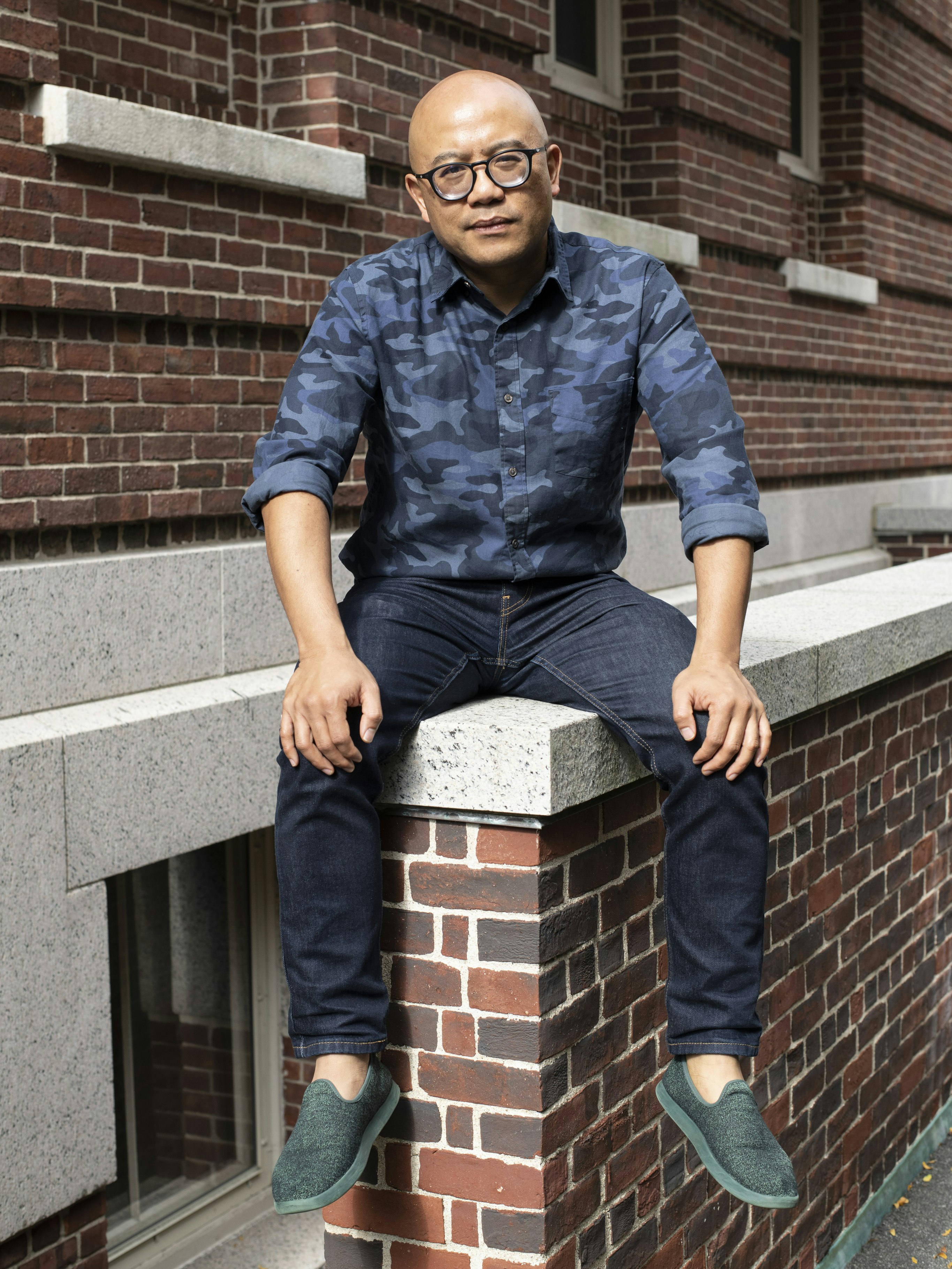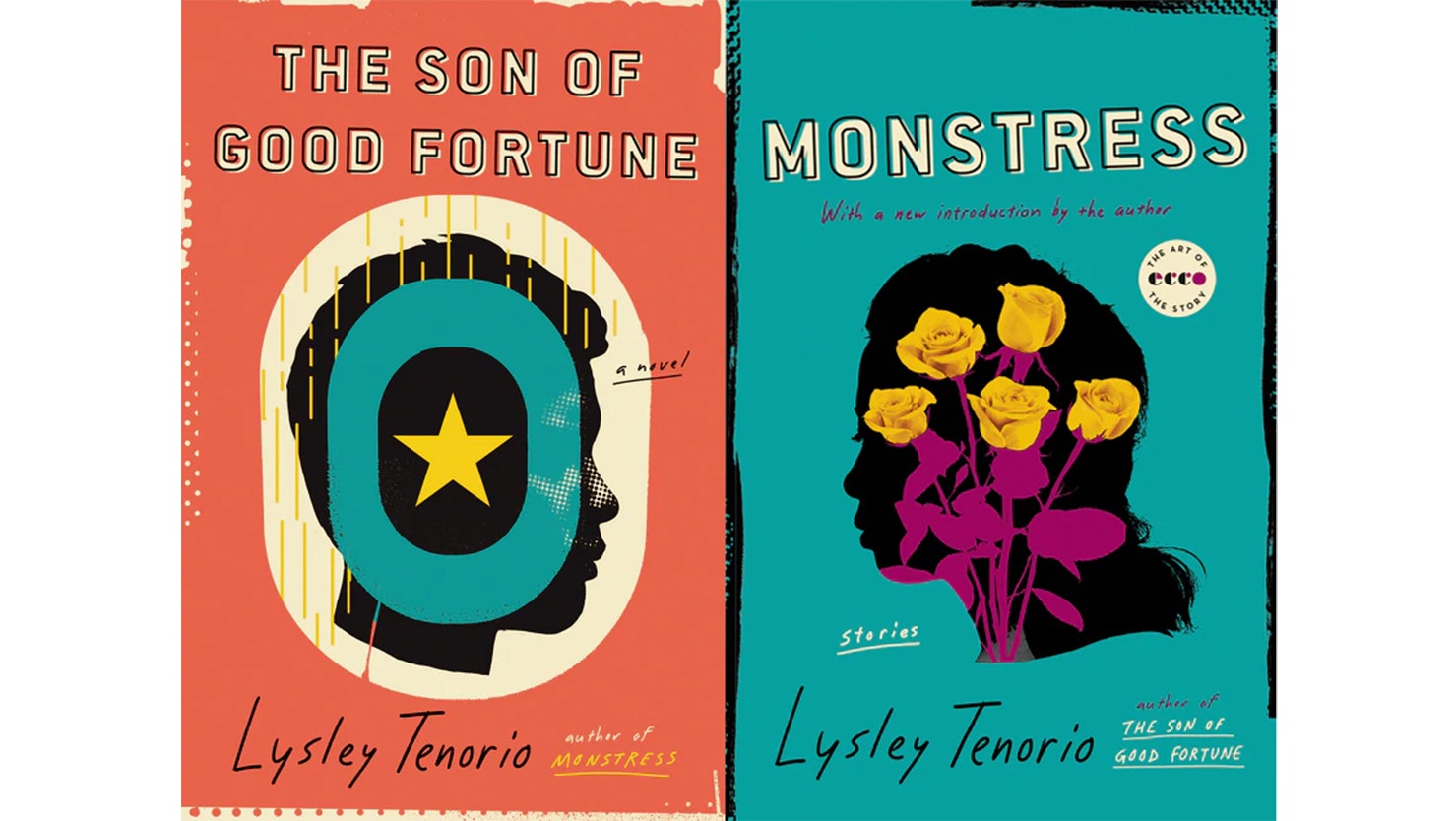The Ache Beneath

The writer Lysley Tenorio seeks to better understand the complexities of Filipino identity at home and abroad.
Lysley Tenorio describes his literary aesthetic as a kind of whimsy and bizarreness, buoyancy even, at the level of plot, that can’t quite obscure the aching sadness underneath. His work explores Filipino identity and the phenomenon of the Overseas Filipino Worker (OFW)—Filipinos who seek work abroad and send money back to their families at home. OFWs face many challenges, but one of the most psychologically damaging is the entanglement of OFW ethnic identity and occupation that often occurs in countries where OFWs live and work. While at Radcliffe as the 2021–2022 Mildred Londa Weisman Fellow, Tenorio is working on a novel, “The Children Go.” We spoke with him about his research, inspiration, and motivation to write.
Radcliffe Magazine: You’ve done quite a bit of research on the phenomenon of the OFW, or Overseas Filipino Worker. Why do you think so many Filipinos decide to work abroad, despite the hardships they are likely to face?
Lysley Tenorio: Filipinos work abroad for one main reason: to provide for their families. Regardless of industry, they can make much higher wages abroad than they can at home. The irony, of course, is that providing for their families often means fracturing them too; whole generations of children are growing up without their parents, cared for instead by older siblings, grandparents, extended family, etc. But for millions of Filipinos, it’s the only viable way to keep their families fed, clothed, housed, and educated—all that’s needed to provide a good life and, hopefully, a future with possibilities.
RM: You’ve said that you are interested in the idea of labor as identity—this problem that a person’s identity can become conflated with their occupation. Can you expand on that?
LT: When I was living in Rome, I met an arts administrator (an American, no less) who told me that he and his partner “had a Filipina.” By that, he meant a maid. The idea that one’s ethnic identity can be synonymous with the labor they perform is appallingly reductive (and racist, sexist, xenophobic, etc.), and I realized that millions of Filipinos are viewed this way by their host countries, despite the fact that so many of them have made these host countries their homes, have raised families there, contributed to their economies, etc. I’m interested in exploring and questioning the ways Filipinos contribute to the world not only in terms of labor but in terms of culture, national identities, etc.

Lysley Tenorio’s novel in progress explores Filipino identity and the phenomenon of the Overseas Filipino Worker. Photo by Tony Rinaldo
RM: “The Children Go” is set on seven continents. How have you gone about researching these drastically different settings?
LT: I was on sabbatical in 2020 and had planned to travel to various countries to get a better sense of what the OFW experience was like, to connect with members of those communities. COVID, of course, derailed those plans, so much of my research comes from tracking any OFW-related news stories from around the globe, reading through scholarly articles about the OFW phenomenon, etc. OFW Instagram accounts, YouTube channels, and podcasts have also been helpful and provide a larger sense of what OFW life can be like beyond the scope of labor.
RM: How have your interactions with other Radcliffe fellows shaped your writing?
LT: From day one at Radcliffe, I’ve been amazed by the scope, vitality, and thoughtfulness of my fellow fellows’ work. They’re incredibly accomplished, so to gain some small insight into their process—the daily work and rigor of it, the creativity and innovation along the way—has helped me be more open with how I approach my own writing.
RM: You yourself were born in the Philippines and immigrated to the United States at a young age. Has writing these stories shaped your own sense of self?
LT: Definitely.
RM: I understand that your first book, Monstress, took 10 years to write. How do you find the motivation to stick with one project that long?
LT: Writing, for me, is work, and my job; the obligation is the motivation.

Tenorio has previously published a novel and a short story collection.
Sam Zuniga-Levy is the communications coordinator at Harvard Radcliffe Institute.








